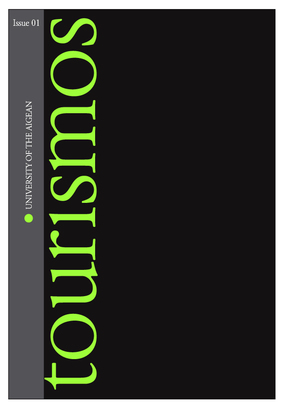The tourism-led growth hypothesis : empirical evidence from Colombia
Part of : Tourismos : an international multidiciplinary journal of tourism ; Vol.4, No.2, 2009, pages 13-27
Issue:
Pages:
13-27
Section Title:
Research papers
Author:
Abstract:
The purpose of this study is to investigate the contribution of tourism to economicgrowth in Colombia. First, we perform an ex-post analysis and quantify thecontribution of the tourism to economic growth from the early 90’s until 2006 bydisaggregating growth of real GDP per capita into economic growth generatedby tourism and by other industries. Second, we analyze if international tourism isa strategic factor for long-run economic growth for Colombia. This believes thattourism can cause long-run economic growth it is known in the literature as thetourism-led growth hypothesis. The hypothesis is tested empirically by using thecointegration test by Johansen and the Granger Causality test. We find empiricalevidence for one cointegrated vector among real GDP per capita, Colombiantourism expenditures and real exchange rates, where the latter two variables areweakly exogenous to the model. The Granger causality test suggests that causalityin this model goes from tourism expenditures to real GDP per capita.
Subject:
Subject (LC):
Keywords:
tourism impacts, economic growth, GDP, cointegration test, causality test
Notes:
Περιέχει πίνακες και βιβλιογραφία




